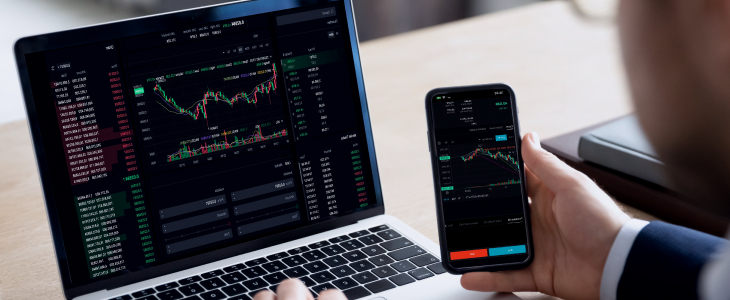The Ultimate Guide to Day Trading in Forex 1942363625

The Ultimate Guide to Day Trading in Forex
Day trading in Forex can be an exciting venture that offers incredible opportunities for profit, but it also comes with a high level of risk. Understanding the fundamentals of Forex trading and how to navigate the market efficiently is crucial. This article will delve into day trading in Forex, providing you with essential strategies, insights, and resources. If you are looking for a reliable broker, check out the day trading in forex Best Cambodian Brokers for assistance in your trading journey.
What is Day Trading?
Day trading refers to the practice of buying and selling financial instruments within the same trading day. In the Forex market, participants look to capitalize on short-term price movements. Day traders typically exit positions by the end of the day to avoid overnight risk and take profits on small price changes. This style of trading necessitates a strong grasp of market dynamics and a disciplined approach.
The Forex Market Explained
The Forex (foreign exchange) market is the largest financial market in the world, with an average daily trading volume exceeding $6 trillion. Unlike stock markets, Forex trading occurs 24 hours a day, five days a week, allowing traders from all around the globe to participate. This liquidity and flexibility make Forex an appealing choice for day traders.
Essential Tools for Day Trading
To succeed in day trading, you need a few essential tools:
- Trading Platform: A reliable and efficient trading platform is vital for executing trades swiftly. Popular platforms include MetaTrader 4 and 5, cTrader, and TradingView.
- Charting Software: Excellent charting tools help traders analyze price movements and make informed decisions based on technical analysis.
- Economic Calendar: An economic calendar lists important economic events, reports, and news releases that can impact currency prices.
- Transaction Costs: Be aware of the spreads and commissions charged by your broker as these costs can significantly impact your profitability.
Strategies for Successful Day Trading
Here are some strategies that day traders commonly employ:
1. Scalping
Scalping involves making small profits from many trades throughout the day. Traders using this strategy open and close positions within seconds or minutes. Scalpers require deep liquidity and tight spreads.
2. Momentum Trading

Momentum trading involves analyzing price trends and entering trades that align with the prevailing market direction. Day traders look for trends supported by volume and other technical indicators.
3. Range Trading
Range trading capitalizes on price fluctuations within defined support and resistance levels. Traders identify ranges and buy near support, selling near resistance, while implementing stop-loss orders to mitigate risk.
4. News Trading
Traders often capitalize on market volatility following news releases. Understanding how specific news can impact currencies is crucial, and having a solid analysis of economic indicators helps traders take informed positions.
Risk Management in Day Trading
Effective risk management is essential for any day trader. Here are some vital tips:
- Set Stop-Loss Orders: Always use stop-loss orders to minimize potential losses on trades.
- Trade Size: Use proper position sizing based on your account balance and risk tolerance.
- Emotional Control: Keep emotions in check to avoid making impulsive trading decisions.
- Daily Limits: Establish daily loss limits to prevent significant losses that can derail your trading strategy.
Finding the Right Broker
Choosing the right broker is a critical part of your Forex day trading journey. Look for brokers that offer competitive spreads, strong customer support, and advanced trading tools. Additionally, check for regulatory compliance to ensure the safety of your funds.
Developing a Trading Plan
A well-structured trading plan is crucial for success in day trading. Your plan should address:
- Your trading goals and objectives
- Risk tolerance and capital allocation
- Trading strategies and entry/exit criteria
- Methods of evaluating performance
Continuous evaluation and adjustment of your trading plan are necessary to adapt to changing market conditions and improve performance.
Conclusion
Day trading in Forex is a thrilling yet challenging endeavor that requires education, discipline, and strategy. By understanding the market dynamics, employing effective strategies, and managing risk, you can increase your chances of success in your trading career. Remember, practice with a demo account before jumping into live trading to refine your skills and develop confidence in your abilities.
Investing time in research and finding reputable brokers is crucial. Use available resources to enhance your knowledge and take control of your trading journey.
